How an honest IAS officer is fighting corruption and inefficiency, one district at a time
What happens when an officer takes fair but tough decisions in public interest which may go against the high and the mighty? What happens when he takes such decisions again and again? Here’s the story of Tukaram Mundhe, an Indian Administrative Services (IAS) officer who has been handed nine transfers in 12 years of his service because of his uprightness and devotion to duty.
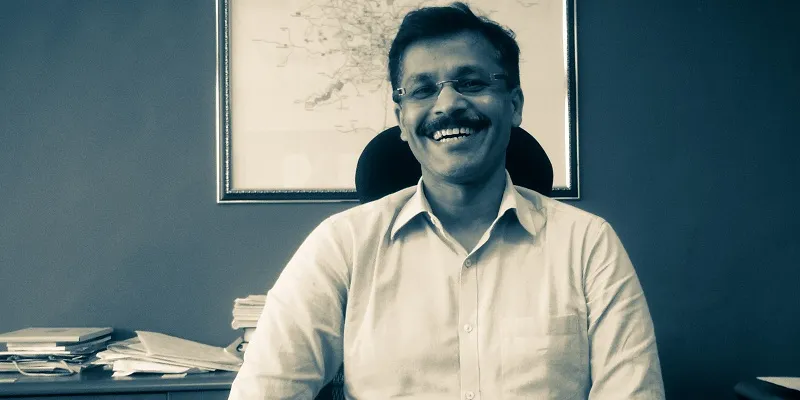
Time – 4:30pm, July 25th, 2011.
Location – Beed-Ambad-Jalna road, near Ambad town in Maharashtra.
An angry mob of more than 5,000 had laid siege to a stretch of the road and surrounded a handful of bureaucrats and QRT (Quick Reaction Team) members. They had gathered to protest against the deaths caused by a speeding truck and refused to allow the authorities to remove the bodies and clear the road. They wanted the driver responsible for the deaths to be handed over to them.
One of the trapped officers was Tukaram Mundhe, the District Collector of Solapur. He tried to pacify the mob by promising quick and strict action against the truck driver. Even as he tried to reason with them, a section of the crowd started pelting stones at the officers present, among whom were the SP (superintendent of police) and the sub-divisional magistrate of Solapur. The 10-member QRT could do nothing but wait for reinforcements, as they were hopelessly outnumbered by the mob. And there was no hope of the additional force reaching before two hours.
Around 6pm, as the mob grew restive, the QRT tried to hold them back by resorting to lathi charge, and firing in the air but without success.
By now, it was clear to Tukaram and his colleagues that they were going to get lynched by the mob if they didn’t take any action swiftly. “I got a feeling that we all were going to be killed,” says Tukaram.
While the officers were still wondering what to do, Tukaram shouted “Fire” to the QRT. The officers were at a loss, since it’s the SP who gives orders to QRT. “I'm the DM (district magistrate), and I'm taking the responsibility. Fire,” Tukaram recalls telling his colleagues.
The ORT fired a few shots at the protesters and within minutes the mob disappeared. By 7pm, everything was back to normal. The IG (Inspector General of Police) and a few ministers visited the place an hour later. The injured were hospitalised. Tukaram and his colleagues prepared a report of the incident by next morning and sent it to be shared in the monsoon session of Maharashtra State Assembly.
The July 25 incident was just a day in the life of Mundhe, a 2005 batch IAS officer, who is now the CMD of Pune Mahanagar Parivahan Mahamandal Limited (PMPML). In his 12 years of service, Mundhe has seen it all – he received death threats for acting against the sand mafia, came close to being demoted for displeasing his political bosses, and got transferred nine times.
Here’s the story of a dynamic officer who believes in doing what’s right and is ready to face consequences for his actions.
Childhood in farms
Tukaram was born in Tadsonna, a small village in Beed district of Maharashtra. Agriculture was the mainstay of this village of 2,000 people (now 5,000). Son of a progressive farmer couple, Mundhe and his brother attended the Zila Parishad school (up to 10th standard) in the village. Tukaram’s family was indebted to moneylenders (sahukaars).
Mundhe learnt his first lessons of truthfulness, honesty and integrity while at home.

Mundhe’s inspiration to become an IAS officer came from his elder brother who was the first graduate and civil servant from Tadsonna. When his brother went away for further studies, Mundhe was just eight years old and had no option but to support his father on their 25-acre farm.
He recalls,
I took the third standard examination and started ploughing the fields after that. I helped in sowing seeds and watering the plants as well. There wasn't enough food to eat at home, because the land wasn't cultivated. Somebody had to work in the farms. So, I started doing it.
Mundhe used to stay on the farm (except during the monsoon season). He would start his day with early morning work on the farm followed by school and then back to the farm until evening. This routine continued till 10th standard. Unlike the well-off kids, he couldn't afford to play after school or during vacations. Because of power cuts, he had to wake up at 2am (when power supply would resume) to water the plants and vegetables.
He sold his vegetables in the weekly market. He says, “From fencing, to digging wells, to sowing seeds, to working in the farms day and night and even during floods, to selling farm produce in the market, I've done it all.”
The best part was that Mundhe never blamed his family for what he had to face. He was well aware of his family’s situation and its struggles. He adds, “My mother was doing it, my father was doing it, so I was naturally inclined to do it. And I don't think I did it grudgingly. I did it willingly. That discipline, indebtedness and way of functioning came into my life pretty early. I was very focused from the beginning, in my work and study.”
The lot of Mundhe’s family improved with time, especially after his brother cleared the Maharashtra Public Service Commission (MPSC) exam. Although his brother had studied in the Marathi medium, he took spoken English classes in Aurangabad to support himself. Tukaram says,
We have gone through a lot of hardships and perhaps that's what makes us more grounded as compared to others. It hurts me a lot when I see any injustice. Some people may say that I'm too sensitive or arrogant. There's very thin line between being firm and being arrogant. I'm very firm about a lot of things. It has come to me because of my background, my experiences of life.
Related read - From teaching in a garage to becoming the director of 3 schools: Nisha Jaiswal’s story
Attempt #1, #2, #3, …
Tukaram went to Aurangabad after his 10th standard. It was a cultural shock for him, coming as he was from a village. He didn’t know about cinemas and saw his first movie at the age of 16. He didn't even know about newspapers as they didn’t get them in his village. He had imagined TV to be a totally different thing in his mind.
Tukaram chose science stream in 11th and 12th because his brother said so. Later on, when his brother asked him if he wanted to become a collector, Tukaram said yes without even knowing what it meant. He says, “I knew that I'll try honestly. I opted for humanities as it’ll be helpful to write the civil services exam.”
Mundhe graduated from Government College of Arts & Science, Aurangabad in History, Political Science and Sociology in 1996. He then went to Mumbai’s State Institute of Administrative Career, a state-run coaching centre to prepare for the Civil Services exam. Simultaneously, he enrolled for his post-graduation as well.
Mundhe first appeared for the Civil Services exam in 1997 and cleared the preliminary exam in the first attempt. However, he couldn't qualify the Main exam.. He scored around 870 in the Main exam. Next year, the result was same though his score read 970 this time. In 1999, he cleared the Main exam but could not make the final cut.. He scored 150 marks out of 300 in the interview and 1,035 in the Main exam.
In the meantime, Mundhe finished his post-graduation and cleared JRF-NET, which made him eligible for a monthly grant (of Rs 5,000) for research in Political Science. Subsequently, he registered in Pune University for research in nuclear policy. The scholarship helped him become financially independent.
After three attempts at the Civil Services exam, Mundhe appeared for the State Civil Services Exam (MPSC) in 2001 and cleared it with ease. He got a class-II post in finance.
Since the selection procedure was quite lengthy (it took almost three years), Mundhe joined as a lecturer in a private college in Jalgaon. He taught there for two months before taking up contractual lectureship in 2001 in a college in Mumbai (Ismail Yusuf College).
In 2003, Mundhe received a letter from MPSC announcing December 2004 as his joining date. He then decided to quit teaching and start preparing full-time for UPSC (research was still going on).
Also read - Meet Caroline Boudreaux, a mother to over 4,200 orphaned children in India and America
The final attempt
Mundhe appeared for the UPSC Prelims and Mains with a lot of confidence this time (because of lectureship and research, past attempts and MPSC success). He cleared them both and was selected for the interview. Since he was undergoing training for MPSC at the time, he requested a month's leave to prepare for the interview but was turned down. He says,
“I wrote the resignation letter immediately but then the Deputy Director of Training took it from me and asked me to go ahead with the leave and not worry about anything.” Mundhe went to Maharashtra Sadan in Delhi to prepare for his final interview.
After the interview, Mundhe resumed his MPSC training. When the UPSC final results were announced on May 11, 2005, Mundhe was going through Vipasana classes in Yashada, Pune. Tukaram asked his friends in Delhi to check if he had made the final cut; he indeed had and secured all-India rank 20. His written score was 1,130 and 180 in the interview. He shared the news with one of his MPSC batchmates, after which the entire Vipasana class erupted in a celebration.
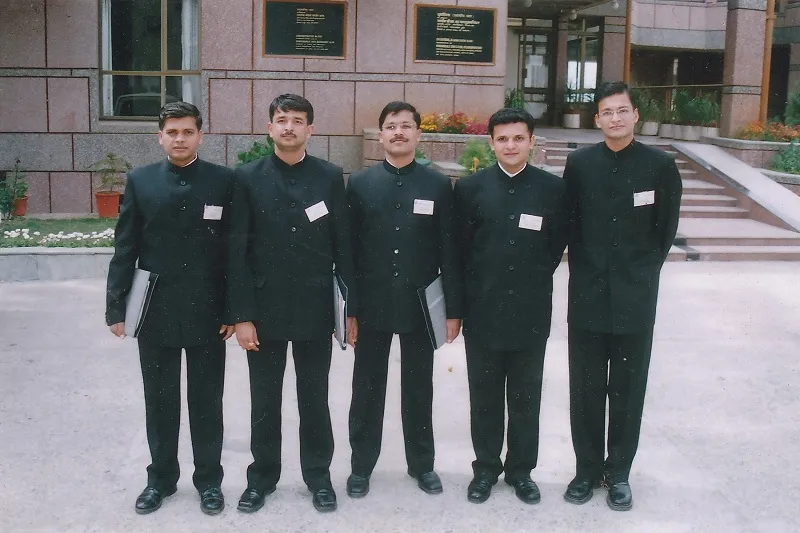
For the next few days, Mundhe toured the different parts of Maharashtra (Beed, Aurangabad, Pune, Amravati, Mumbai, and others) guiding the students on how to prepare for the Civil Services. He says he noticed that many students from the rural background felt confident after hearing of his success. He even wrote a few articles in the local newspaper on how to prepare and crack the Civil Services examination. Looking back, Mundhe says,
In between, my father got a paralytic attack in 2000. 2000-2004 was a very difficult time for me. But it’s times like these when your ability to make decisions come into play. It also helped me grow as an individual. Meanwhile, the MPSC training helped me to understand the functioning of the government to an extent.
The IAS training was the first time when Mundhe participated in cultural activities. He enjoyed the training and and life over there.
You may also like - Neichute Doulo: the Naga man encouraging 7K youth to take up entrepreneurship
Man with a mission – Solapur – part - I
Mundhe was allotted the Maharashtra cadre and started his probation as supernumerary (assistant collector) at Solapur. One of the first things that he did after assuming charge was to raid an illegal bar. It was his 3rd or 4th day in service. With his collector’s permission, he along with other officers raided the bar which was owned by a powerful politician.
He was then posted as Chief Officer of Municipality (as part of his training) of Barshi block in Solapur. He had prepared very well for that. This was in March (2007) and the state legislative assembly was in session. He started the demolition of unauthorised encroachment, after having given a month’s notice to the offenders. He recalls a series of incidents related to the demolition drive.
While the demolition of an unauthorised liquor shop was in progress, a person threatened to set himself afire if the demolition continued. Mundhe knew that if he stopped, the demolition drive would stop too. He asked an officer to record the video and then arrest him on account of threatening to commit suicide.
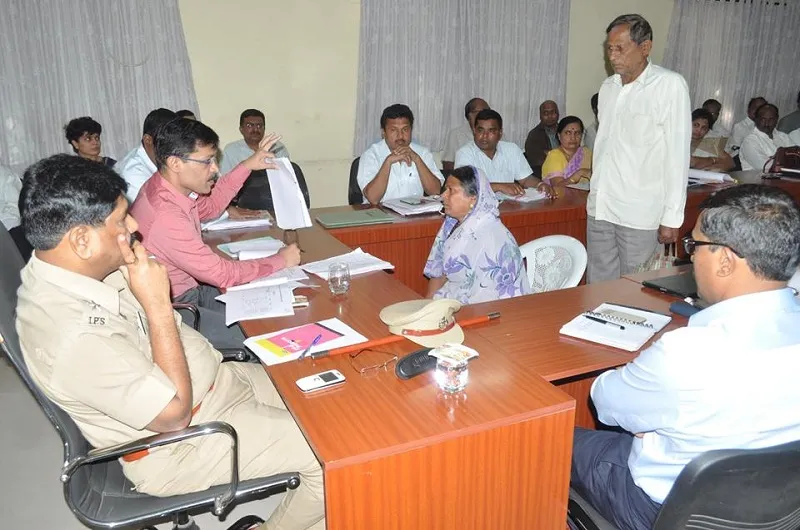
Next day, during Question Hour in the assembly, his resignation was demanded. However, Mundhe’s collector came to his rescue.
- On the third day of the drive, the owner of an unauthorized medical shop threatened to consume poison if his shop was demolished. Mundhe didn’t stop though. After the demolition, the shop owner pretended to fall down by feigning a heart attack. Mundhe asked his team to pick him up, put in a rickshaw, take him to the hospital and make him pay the bill. The moment he said that, the shopkeeper got up saying he didn't have any problem.
- On the same day, the demolition squad came across a house (hut) where a 90-year-old lady stayed. She was on her own. After being in two minds about the fate of the woman, Mundhe decided to demolish the house. His team was shocked as the media was there and the lady was crying. He didn’t stop as there were more than 50 houses with illegal encroachments that had to be demolished. It was a very uncomfortable moment for Mundhe. He had no choice but to go by what was right and wrong. He knew that this was just beginning and he would have to face much more difficult situations in life.
That’s when Mundhe came up with a three-point checklist for himself that would help him decide if his action was right or wrong:
- His action has to be legal.
- It has to be morally correct in terms of the larger interest of public morality.
- It should be in public interest.
If his action was validated by any two points in the checklist including the mandatory condition of legality, he would proceed with his decision. In the last 11 years, he has made a lot of decisions using the checklist.
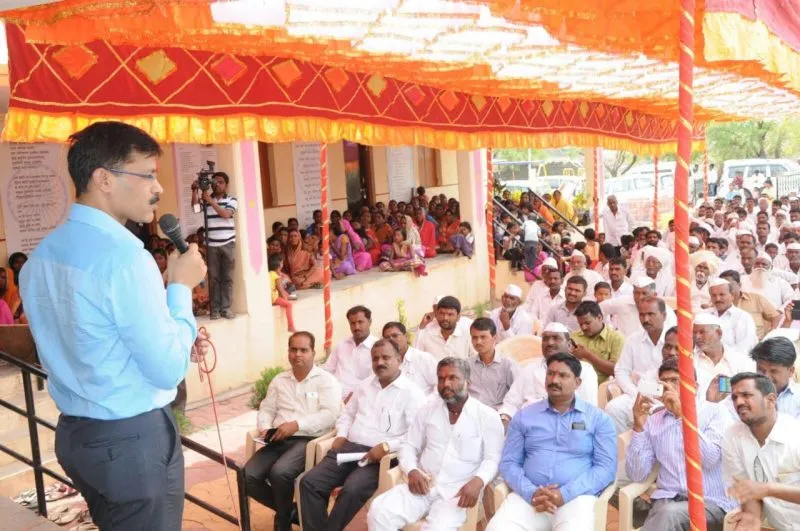
As a result of the demolition drive, the roads could be broadened by 2-6 metres. But there were challenges galore. A group of individuals tried to sully Mundhe’s image by filing a fake FIR against him under the Prevention of Atrocities Act. He says,
There are incidents like these when an officer has to make choices. Often, when you find officers who are not doing the right things despite having the powers, it's because of such incidents. They either ignore issues or become inactive or change that path. When as a society we expect officers to do something, we forget that often the same society puts us in this situation. That's why you'll see that people taking such paths are facing a lot of difficulties.
Next, Mundhe was posted in Madha for some time where he took actions against the sand mafia.
Also read - His mother had posted a ‘groom-wanted’ ad for him: Harish Iyer, a beloved face of the LGBTQ movement
Orders to join but not allowed (to join)
After completing his training, Mundhe was supposed to join Miraj, Sangli but wasn't allowed to do so. He learnt that a minister was keen to bring in someone else there. After two days, he was assigned the post of Project Officer, Dharni, ITDP -- tribal block. While all his batchmates had become SDOs by now, he was posted as project officer. He was later shifted to Deglur, Nanded as Assistant Collector.
Mundhe took the charge in September 2007 and went to the Circuit House (guest house for officers). He noticed that the water supplied to the Circuit House (and elsewhere in the city) was muddy. The next day he issued a notice to the Municipal Council under Section 133 of CrPC. This provision is very helpful if an SDO (or DM) wants to use to improve services. He says,
I gave them seven days time to improve the water quality. If it's not done in seven days, I was going to pass orders under Section 136/137 of CrPC which entails imprisonment up to six months. Within 48 hours, the water was no longer muddy.
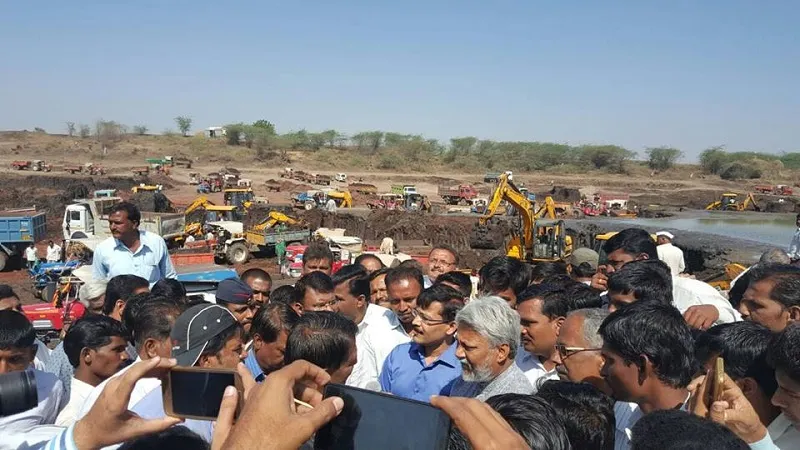
The muddy water supply was due to the broken pipeline at one of the farms (which belonged to the Nagar Adhyaksh). Unfortunately, immediately after Mundhe left Deglur, the muddy water supply resumed.
During his Deglur stint, Mundhe took actions against the land and sand mafias. This was the first time he got death threats. Subsequently, he was given guards (security) and he continued with his drive. He recalls, “I was in Deglur from September 2007 to January 2008. In that time, it was the only division in Maharashtra where not even a single appeal was pending in my office on 31st December 2007. I disposed off more than 500 appeals within four months.”
As a result, lawyers were unhappy because their income went down (a maximum of three dates were given to close a case), but people were happy. Mundhe had set in a system where all the decisions were made on time.
Mundhe imposed heavy fines on those involved in illegal sand mining in the Godavari river basin. The fine per truck was Rs 20,000-25,000. He says, “They didn't understand the language of FIRs. They were making money, so the idea was to fine them so much that they incurred losses.”
He used to make random visits to the riverside at 2 in the morning. The miners became so alarmed that they gave Rs 2,000-3,000 and a mobile to all the small shopkeepers around Mundhe’s office to keep them informed about his whereabouts.
Mundhe also fixed the broken system of kerosene and other civic supplies under the Public Distribution System.. In order to break this system, he decided to randomize the dealer, sub-dealer and retailer allocation (now, nobody knows who’s going to supply whom). The chain was broken and the people got what was due to them.
Eventually, Mundhe had to face the wrath of some powerful people, and was transferred to Nagpur (Zila Parishad) where he joined as CEO in January 2008.
Also read - Living in Bengaluru for 18 years, this American couple has helped over 6,000 differently-abled persons
Nagpur chapter – how to deal with press
The Nagpur Zila Parishad was in lot of turmoil then. There was rampant corruption in the irrigation department. When the press (media) came to meet Mundhe, he asked them to come later as he then didn't have anything to say to them. That didn’t go down well with the press people and throughout his stint at Nagpur, the media didn’t pay much heed to Mundhe’s positive work in the area. That's the hard way he learnt to deal with the press.
On his first day in Nagpur, Mundhe noticed that some schools were closed because the teachers had gone to attend an adhiveshan (union activity) without any intimation. He suspended them immediately. After that everyone fell in line.
He streamlined the processes across all the divisions and visited villages and blocks regularly. He refused to enrertain transfer requests wherever they were not due and made sure that those office bearers whose transfers were due for long were transferred first.
Mundhe held daily meetings from 9am to 9pm without a break and went to blocks with all HODs to inspect the work and take actions. He discovered that almost Rs 50-60 crore was lying unused under the Indira Awas Yojana (sanctioned on paper but negligible work was done on the ground). Similarly, he suspended on-duty doctors for irregularities in the NHRM scheme. That was probably the first time a CEO had suspended a doctor. When Mundhe joined as Nagpur CEO, institutional deliveries in sub-centres was 1-2 percent and by the time he left, it reached 9 percent. During his stint, teachers' absenteeism went down from 12-13 percent to almost 2 percent.
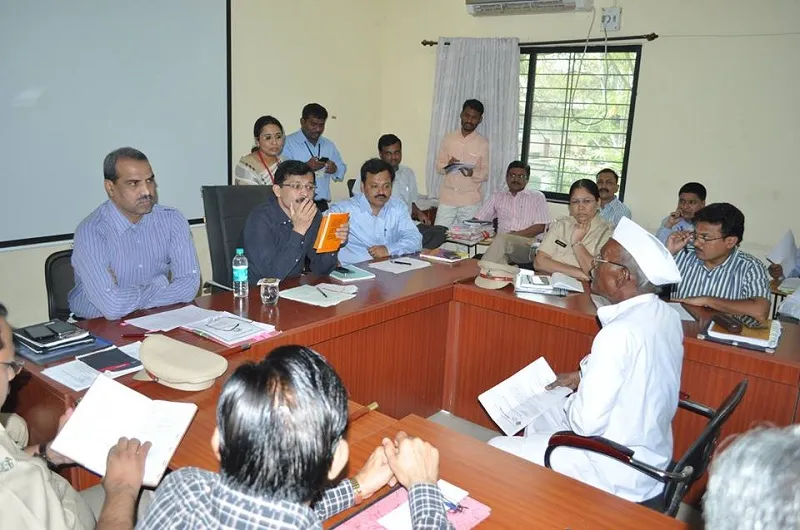
A no-confidence resolution was passed in the Zila Parishad against Mundhe which was rejected by the then chief minister on technical grounds. Unfortunately, after the 26/11 attacks, soon after the CM resigned, Mundhe received his transfer orders in March 2009.
Mundhe got married during his Nagpur posting. Many people thought he would not be able to maintain his strict schedule now but were proved wrong as his commitment to service and his personal life didn't come in each other’s way.
Specially created post
Mundhe was expecting his next posting to be in Zila Parishad, but he was given the post of Additional Tribal Commissioner, Nasik. It was a non-cadre post which was specially created for him. Other additional collectors in Nasik (also IAS officers) continued with their stint. He was given this post without any job chart and vehicles. His wife was pregnant then. He went there and joined as he didn't have an option. He stayed in a guest house in Nasik, while his family was in Pune. From March 2009 to July 2009, he was posted in Nasik. It was a difficult time for him.
In the meanwhile, Mundhe wrote to his office that he was not supposed to be kept in his Nasik posting for more than three months as it was a non-cadre post. After writing 3-4 letters, he was deputed as CEO of Washim, one of the smallest districts (Amravati division) of Maharashtra.
He was in Washim for 10 months and worked with the same commitment as before. He suspended the president of the Gram Sevak Union on the grounds of corruption. Angry at his suspension, the man hurled a a paper weight at Mundhe in his office, which, however, missed its target. Mundhe filed an FIR against the man, and the people of the town took out a peace march in his favour but no action was taken. Finally, Mundhe invoked Article 311(3) of the Constitution and dismissed the president when he didn't appear for the hearing. He says, “It was a tough time for me and looking back, I can say that 26/11 had a deep impact on my career.”
Related read - How a self-taught engineer is saving Hyderabad from a water crisis
The maximum city
Mundhe was transferred to Mumbai in May 2010 as the CEO of the Khadi and Village Industries Commission (KVIC), which interestingly was a secretary-level post. He applied for residence but it took him six months to get one allotted. When he joined KVIC, the organisation was making losses and by the time he left (after one year), at least three of its units were profitable.
He also made use of PMEGP (the Prime Minister Employment Generation Programme) which was implemented by KVIC, KVIP, DIC as per government guidelines. As a result, the highest ever PMEGP projects were undertaken that year. Later on, he recommended many suggestions on behalf of KVIC for the next five year plan, all of which were incorporated.
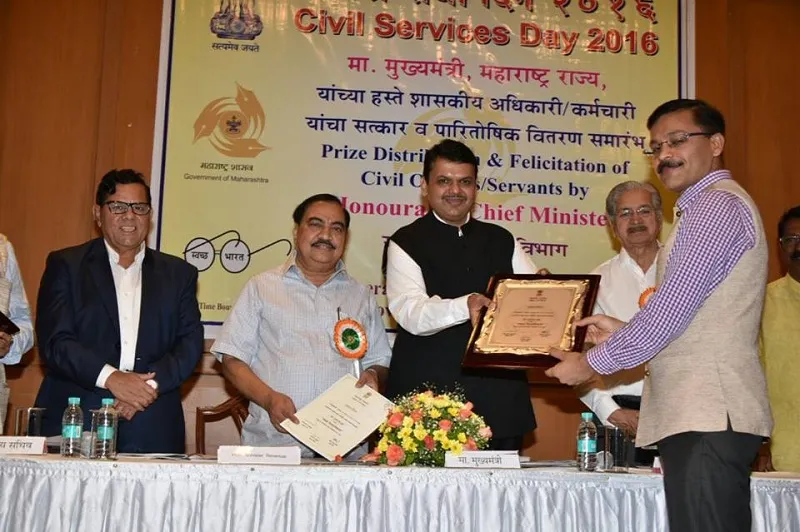
Bringing Jal in Jalna
In June 2011, Mundhe was posted as district collector of Jalna. Here, he looked into the issues of illegal mining and land matters. Here too, he organised block inspections which witnessed participation of all the officers from police stations, BDO office, power sector, PWD, irrigation and other departments.
He solved the problem of water scarcity in the city, which received water once every 5-6 days. He asked the Chief Officer (Municipality) to increase the frequency of supply to every alternate day. Jalna city was getting its water from the Jayakwadi project through a 250-km pipeline. Even though the amount had been sanctioned, the pipeline work had been pending for more than six years. Mundhe got the pipeline completed in three months. He also discovered that there was another project from Nizam's time, which could be revived after desilting to augment the water supply to the city.
Following his Deglur model, Mundhe broke the dealer-subdealer-retailer nexus and empowered the village communities (according to the law) for certifying the goods received under the Public Distribution Scheme. This resulted in an increase in demand by almost 40 percent, and made it difficult to divert supplies. He also digitized land records, property cards, etc.
Before long, Mundhe received orders to move to his next destination – Solapur.
This is part-1 of the story. Click here to read part-2 which talks about Tukaram Mundhe's magical patterns and his current role at PMPML. We also take a deep dive into his personal belief system and plans in part-2.







